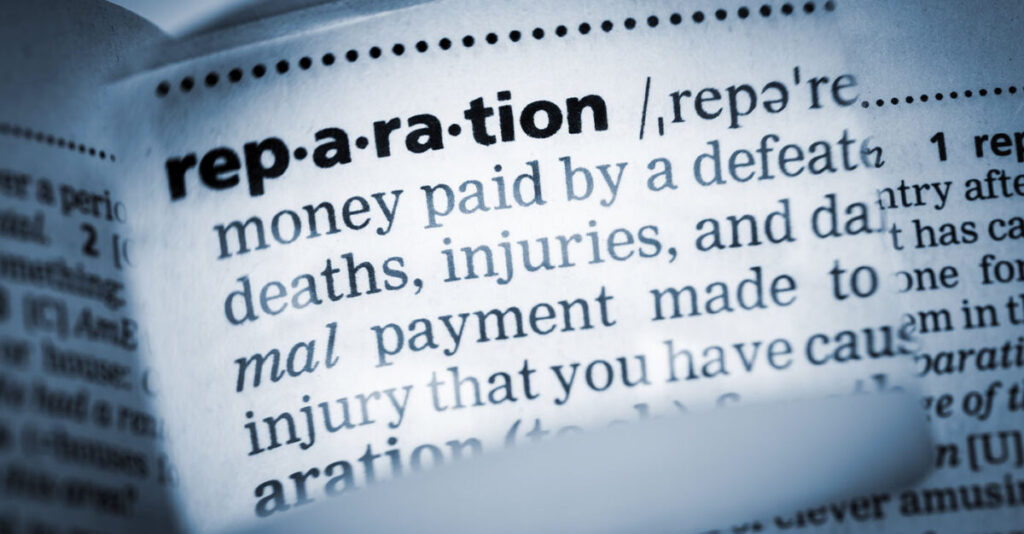By April Ryan
“The President doesn’t have a public position on the issue,” said a senior White House Official, regarding the most recent debate on reparations or a reparations study.
The question arises as Maryland’s latest controversy over reparations versus a reparations study continues. Governor Wes Moore has vetoed any bill that proposes studying reparations in the state. Maryland’s Legislative Black Caucus wants a two-year commission to study reparations.
Maryland State Senator Ron Watson supports Governor Moore, saying, “The vestiges of slavery are well known and have been well documented. And if anyone reads the recommendations of past reports, one would see that this governor has been silently focused on resolving these inequities.”

Over the last 25 years, Moore emphasized, five reparations-related studies were conducted, including the Maryland Lynching Truth and Reconciliation Commission and the State Commission to Coordinate the Study, Commemoration, and Impact of the History and Legacy of Slavery in Maryland. Moore’s firm “no” emphasizes that it’s time for “action,” not another study.
On Friday, Maryland’s first Black governor spoke extensively about his veto decision at the NAACP national board meeting in Baltimore City, where the organization is headquartered. Sources close to the meeting say the governor was “clear” in his explanation.
In Washington, D.C., reparations also dominated conversations last Thursday on Capitol Hill. Democrats reintroduced the idea of reparations with a resolution that offers trillions of federal dollars in reparations to Black Americans to repair the damage of the enslavement of Africans in America for 250 years, followed by Jim Crow and the ongoing effects of other federally supported discriminatory policies.
Historically, there have been instances of reparations in this country—such as for Japanese Americans interned during World War II. $38 million was awarded in total, with each victim receiving a $20,000 payout. However, Black Americans have not received anything comparable for the enslavement of Africans in America, during which enslavers profited off free labor.
In 2021, Evanston, Illinois, created a reparations plan for its Black residents. Additionally, Georgetown University created a new fund that awards $400,000 annually to community-based projects benefiting the descendants of the men, women, and children enslaved on Jesuit plantations in Maryland.
A senior White House Official said that when it comes to reparations, President Trump “is creating an economy that’s gonna work for all Americans. And if the Democrats really want to uplift the Black community, they would support the President’s One Big, Beautiful bill that would bring about record tax cuts to this economy, which would benefit Black Americans.”
The President’s bill would remove undocumented immigrants from Medicaid, give Social Security recipients a reprieve, and eliminate taxes on overtime pay and tips.




